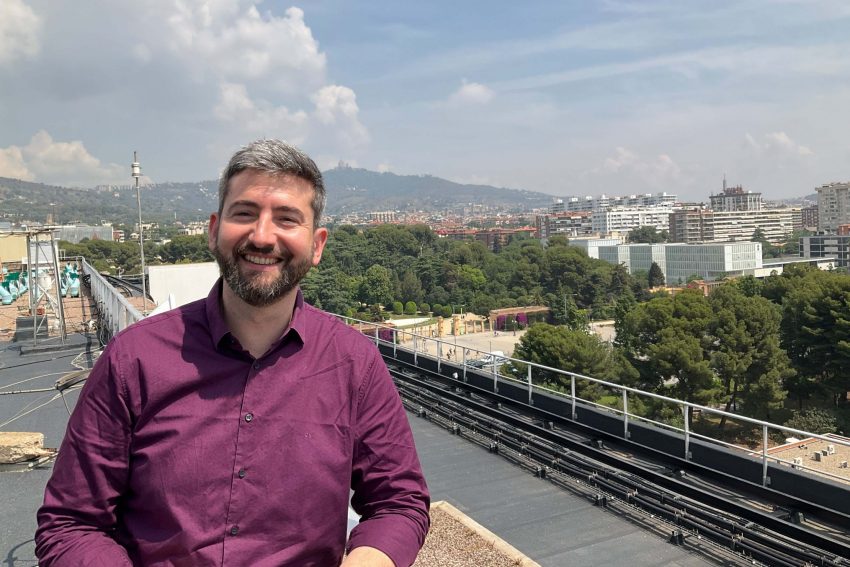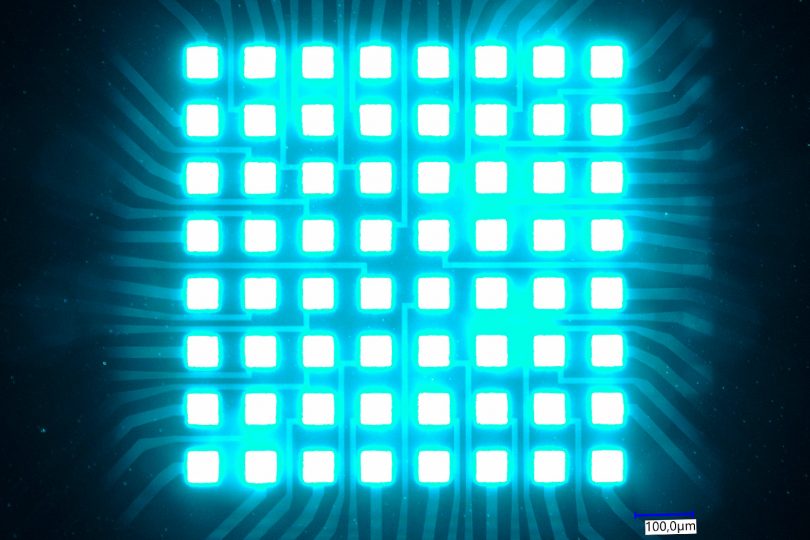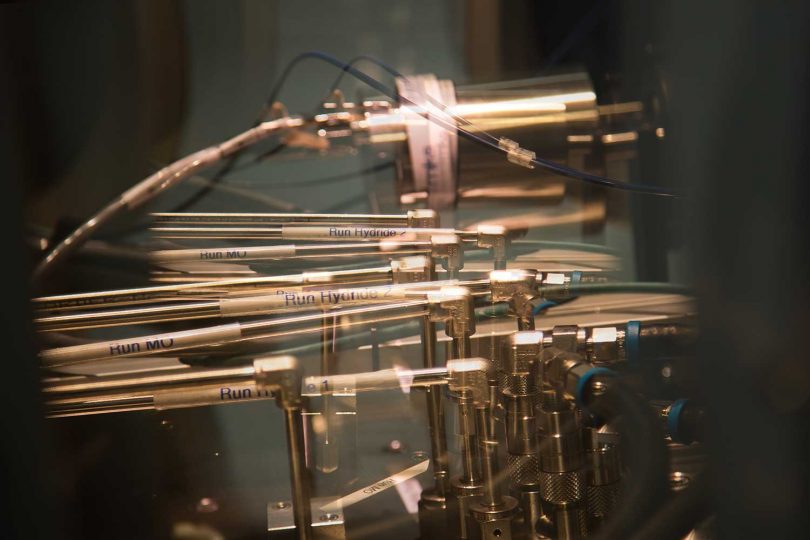“A unique opportunity in a career lifetime” Getting to know Daniel Prades, TU Braunschweig’s first Alexander von Humboldt-Professor
Starting in 2024, Daniel Prades will join the Core Research Area (of) Metrology and the Cluster of Excellence QuantumFrontiers, funded by the Alexander von Humboldt Foundation with 5 million Euros for five years. We asked the scientist from the University of Barcelona how Germany’s highest-doted award impacts his career and what he is going to do with it.

On his way from Barcelona to Braunschweig: Alexander von Humboldt Professor Daniel Prades. Picture credits: Daniel Prades
Professor Prades, congratulations! What does this award mean to you – as a scientist and to your research?
This is a unique opportunity in a career lifetime. And I am not referring to the amount of funding behind the professorship. It is a huge achievement for me to receive this highly competitive and prestigious award. I am very happy that TU Braunschweig backed up my application and our idea and vision were well approved by both, the university and the Humboldt Foundation.
On the research side, this award enables quite a lot. First of all, I am going to be an active part of Europe’s densest research region. Especially for my research goal of creating a new approach to a sensor basis that can be applied anywhere, Braunschweig is the sweet spot for this. With my colleagues at TU Braunschweig and PTB, I can push forward the idea of ubiquitous sensing and completely shift how we perceive everyday life.
Is there something, you are especially looking forward to?
For me personally, the Humboldt-Professorship offers me a new environment with a lot of stimulating ideas for my research and teaching. I am looking forward to learning something new every day. I already know lots of scientists at TU Braunschweig from previous joint research projects and I am eager to bring our cooperative work to a new level. Even in times of pandemic, our collaboration was well coordinated and productive. Now, or as soon as I arrive in the first half of 2024, we can work together even better as a team.
The advantage of sharing ideas on a daily basis and bringing so many competencies together in a small environment will give our projects a huge leap. In our previous projects, we also combined complementary know-how and different techniques to develop better and better microscopic LEDs. Soon, we will be able to bring all that expertise in one place together.
With the enabling power of the Humboldt Foundation at your back, what do you expect of the coming five years?
Firstly, I would like to look back five years in the past. Back then, our cooperation between Barcelona and Braunschweig just had started the project Chipscope. We had the daring idea of building a small microscope out of an array of even more microscopic LEDs. In the following years, we did not only demonstrate the possibility of this idea but rather realized how much potential the underlying technology of many, small and precisely steerable LEDs has. So we shifted our priorities and shared our different expertise to make this technology accessible for all kinds of applications and innovative ideas. Now, we are starting to accelerate with ever-new ideas to use those tiny light sources.
With those successful years and our current achievements in my mind, I am excited for the coming five years. On the one side, we will get even better results in producing and deploying our technology. On the other side, I expect a lasting impact on the surrounding scientific and industrial landscape as our technology opens so many possibilities. I especially like our concept of ubiquitous sensing. As the Micro-LED-Technology is comparatively cheap, small and consumes minimal amounts of electricity, there is nothing to stop our ideas like gas sensors to become part of our everyday life. In the future, we may be able to constantly scan our environment for toxicological substances or assess the air quality we breathe at the moment.
How does your Humboldt Professorship affect the joint research activities and international exchange between Braunschweig and Barcelona?
I think this award boosts the internationalization of both universities. Scientific work is a team effort and naturally, there are a lot of people involved to achieve something with a lasting impact. I’ve been to Braunschweig quite often. I like the lifestyle, especially the plenty of opportunities to pursue my passion of being a hobby pilot, but also the city in general and would consider myself a decent ambassador for connecting Braunschweig and Barcelona.
Now, this punctual ambassadorship can evolve into a much more stable connection. For example, we already have plans for new applications of our technology. Putting together the right team and matching them across borders will now become a regular exercise. In Addition, we were already trying to establish an Erasmus Agreement for the students of our subject between the two Universities. I expect that this will also gain a lot more purpose and direction.


